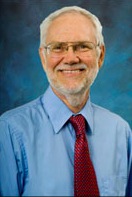 How have theologians understood — or explained — the Trinity?
How have theologians understood — or explained — the Trinity?
He sees three levels of understanding Trinity:
1. The evangelical and doxological — this is how we experience God the Father, through the Son and in the Spirit. Perhaps a way of seeing this is that we experience God as Father, as Son and as Spirit but we don’t comprehend their relations.
2. The economic — how God has revealed himself externally in history. Thus we have time, space, suffering and change.
3. The immanent — the inner life of God, the relationship of Father and Son and Spirit to one another. A fundamental logic is at work here: As God reveals himself, so God is in himself. That is, if God reveals himself as good and gracious, that is because God is good and gracious. Rahner and Moltmann famously contend the immanent and the economic Trinity are the same, and this has led some to make God only his effects … that is, it denies the otherness and objectivity of God. Highfield rightly observes that this makes the economic Trinity prior. Highfield thinks along with many — Barth, Torrance, Gunton — that we can learn about the immanent Trinity from the economic but not make the two the same.
There are two other views and both have been rejected by Orthodoxy:
Subordinationism, which sees one divine nature and three persons, but ends up denying the same essence/nature in all three persons. Son and Spirit occupy a lower level of being.
Modalism, which sees one divine nature but not three genuine persons or distinctions in the persons. Father, Son and Spirit are three names under which the One God operates.
One being, three persons — this is the issue.
Being is ousia in Greek and person is hypostasis. Highfield emphasizes, with Gregory Nazianzus,”person” in relation to the other. Being is essential relational: God “is” Father, Son and Spirit. “The Father is his fatherhood, the Son is his sonship, and the Spirit is his ineffable relationship to the Father and the son” (133). Their being is mutual indwelling and interpenetration of the other– that is, the perichoresis. We discover here that God is a community of persons.
 How have theologians understood — or explained — the Trinity?
How have theologians understood — or explained — the Trinity?
, sketches the “Trinity” as well as I’ve seen for an introductory text and the 3d section of chp 4 is about the theological understanding of the Trinity.

